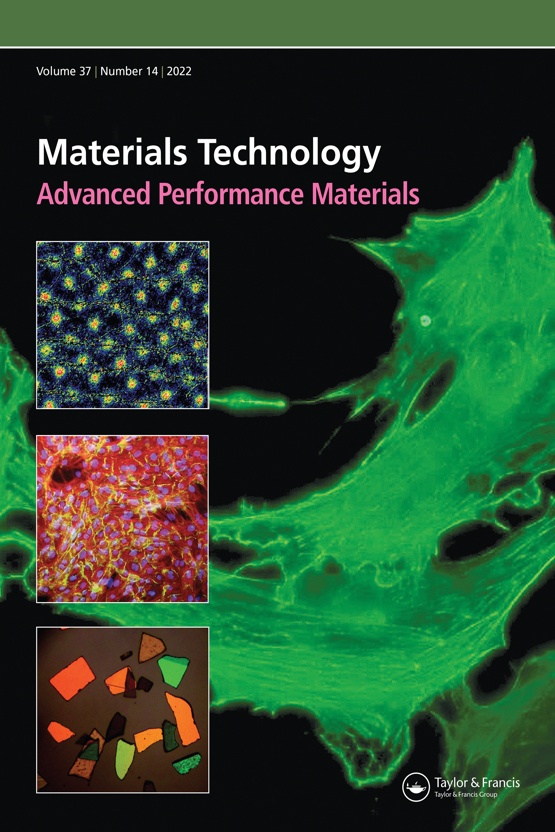Submit a Manuscript to the Journal
Materials Technology
For an Article Collection on
Advances in Solid-State Batteries: Materials, Technologies, and Applications for Next-Generation Energy Storage
Manuscript deadline


Article collection guest advisor(s)
Prof. Li Lu,
National University of Singapore, Singapore
mpeluli@nus.edu.sg
Prof. Masashi KOTOBUKI,
Ming Chi University of Technology, Taiwan
kotobuki@mail.mcut.edu.tw
Advances in Solid-State Batteries: Materials, Technologies, and Applications for Next-Generation Energy Storage
Solid-state batteries are gaining significant attention as a next-generation energy storage solution, offering improvements over conventional lithium-ion batteries, including higher energy density, enhanced safety, and better performance in extreme environments. Recent advancements in solid-state electrolytes, interface engineering, and scalable manufacturing processes are addressing key challenges in this field. The potential applications of solid-state batteries span across various industries, such as electric vehicles, portable electronics, and large-scale energy storage systems. This topic explores the latest research on solid-state battery materials, technologies, and their integration into real-world applications. It focuses on both the fundamental science and practical innovations that drive the development of more efficient, sustainable, and safer energy storage solutions.
Solid-state batteries are critically important for advancing energy storage technologies, offering key advantages over traditional lithium-ion batteries. They provide higher energy density, which is essential for applications like electric vehicles (EVs) and portable electronics, allowing longer battery life and reduced charging times. Moreover, solid-state batteries are safer due to their use of non-flammable solid electrolytes, minimizing the risks associated with liquid-based systems, such as thermal runaway and fires. They also perform better under extreme temperatures, making them suitable for a wide range of industrial and commercial applications. As the global demand for clean and efficient energy solutions increases, solid-state batteries are poised to play a crucial role in enabling sustainable energy storage, reducing dependence on fossil fuels, and supporting the transition to renewable energy sources. Their development is vital for enhancing the performance, safety, and scalability of next-generation energy storage systems.
Solid-state batteries are a transformative technology offering higher energy density, enhanced safety, and better performance under extreme conditions compared to traditional lithium-ion batteries. Their unique advantages make them ideal for applications in electric vehicles (EVs), portable electronics, and large-scale energy storage systems.
Subtopics:
- Solid-State Electrolytes: Innovations in materials with high ionic conductivity and stability.
- Battery Interfaces: Challenges and solutions for optimizing solid-state electrolyte-electrode interactions.
- Manufacturing and Scalability: Techniques for cost-effective, large-scale production.
- Applications in EVs and Electronics: Performance and commercial viability in electric transportation and consumer devices.
- Energy Storage Systems: Role in grid-scale storage and renewable energy integration.
Preferred Article Types:
- Research Articles: Original findings on solid-state battery materials and technologies.
- Review Papers: Current state and future directions of solid-state battery development.
- Technical Notes: New experimental methods and approaches.
- Perspective Articles: Challenges, opportunities, and trends shaping solid-state battery technology.
This collection will provide a comprehensive overview of advancements in solid-state batteries and their applications.
Prof. Li Lu is a Full Professor at the National University of Singapore. After completing his Ph.D. and a two-year postdoctoral fellowship at KU Leuven, Dr. Lu joined NUS in 1991. His research focuses on Li-ion and Na-ion batteries, solid ion conductors, solid-state batteries, and supercapacitors. Dr. Lu has authored five monographs, over 500 journal papers, and delivered numerous Plenary, Keynote, and Invited Lectures at international conferences. His work has earned over 30,000 citations and an h-index of 100.
Prof. Masashi Kotobuki obtained Ph.D, in materials science from University of Yamanashi, Japan in 2006. Then, he worked in Ulm university, Germany as a Humboldt Research Fellow. After that, he worked in Tokyo Metropolitan University and Hakodate National College of Technology, in Japan, as assistant and associate professors, respectively, then worked in National University of Singapore. In 2021, he became a full professor in Battery Research Center of Green Energy, Ming Chi University of Technology, Taiwan. His research interest is batteries, supercapacitors, ceramic materials, and ceramic processes.
All manuscripts submitted to this Article Collection will undergo a full peer-review; the Guest Advisor for this Collection will not be handling the manuscripts (unless they are an Editorial Board member).
Please review the journal scope and author submission instructions prior to submitting a manuscript.
The deadline for submitting manuscripts is 31 December 2025.
Please contact Agnes Zhou at Agnes.Zhou@taylorandfrancis.com with any queries and discount codes regarding this Article Collection.
For Taylor and Francis Journals: Please be sure to select the appropriate Article Collection from the drop-down menu in the submission system.
Benefits of publishing open access within Taylor & Francis
Global marketing and publicity, ensuring your research reaches the people you want it to.
Article Collections bring together the latest research on hot topics from influential researchers across the globe.
Rigorous peer review for every open access article.
Rapid online publication allowing you to share your work quickly.
Submission Instructions
All manuscripts submitted to this Article Collection will undergo desk assessment and peer-review as part of our standard editorial process. Guest Advisors for this collection will not be involved in peer-reviewing manuscripts unless they are an existing member of the Editorial Board. Please review the journal Aims and Scope and author submission instructions prior to submitting a manuscript.
